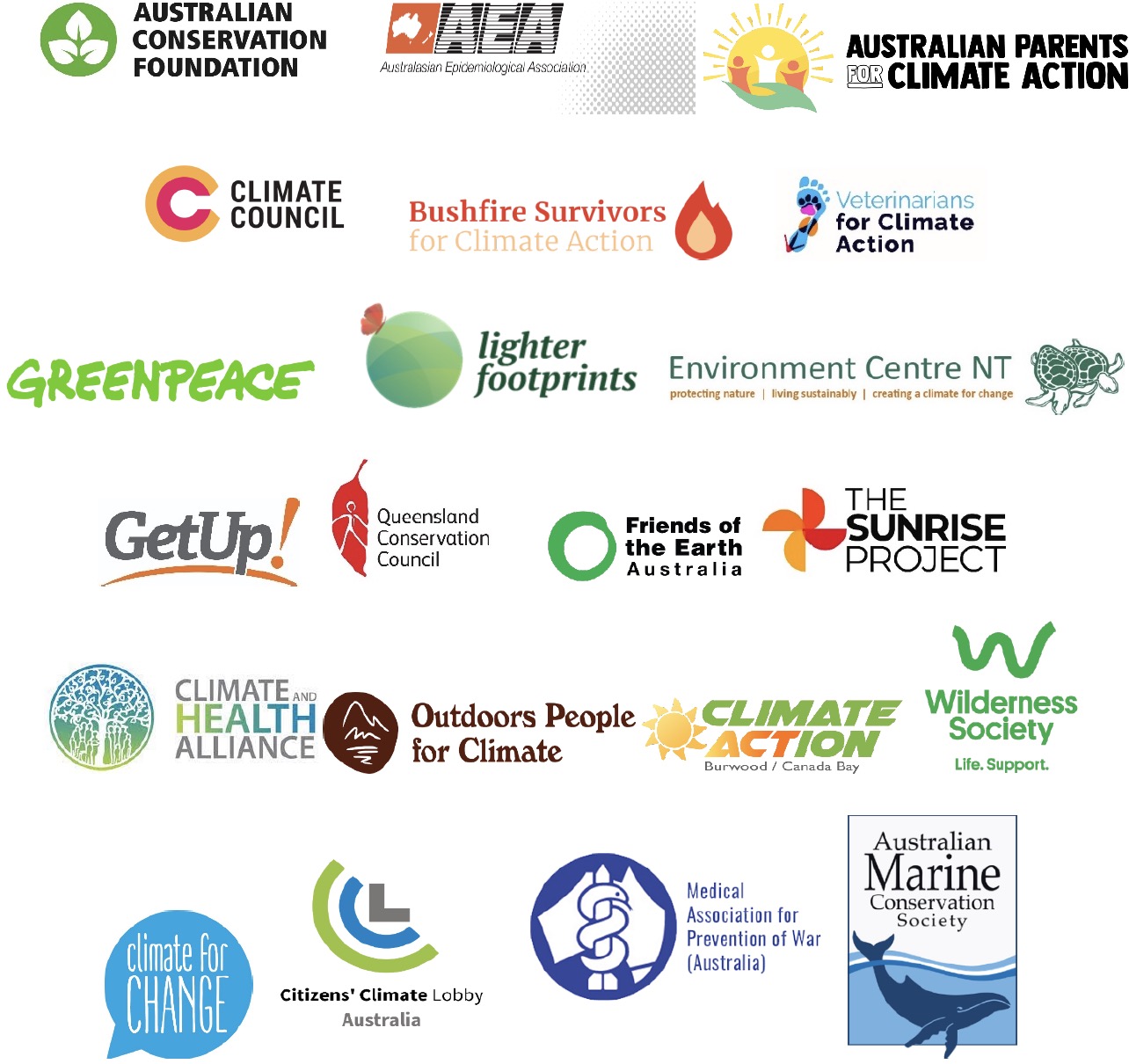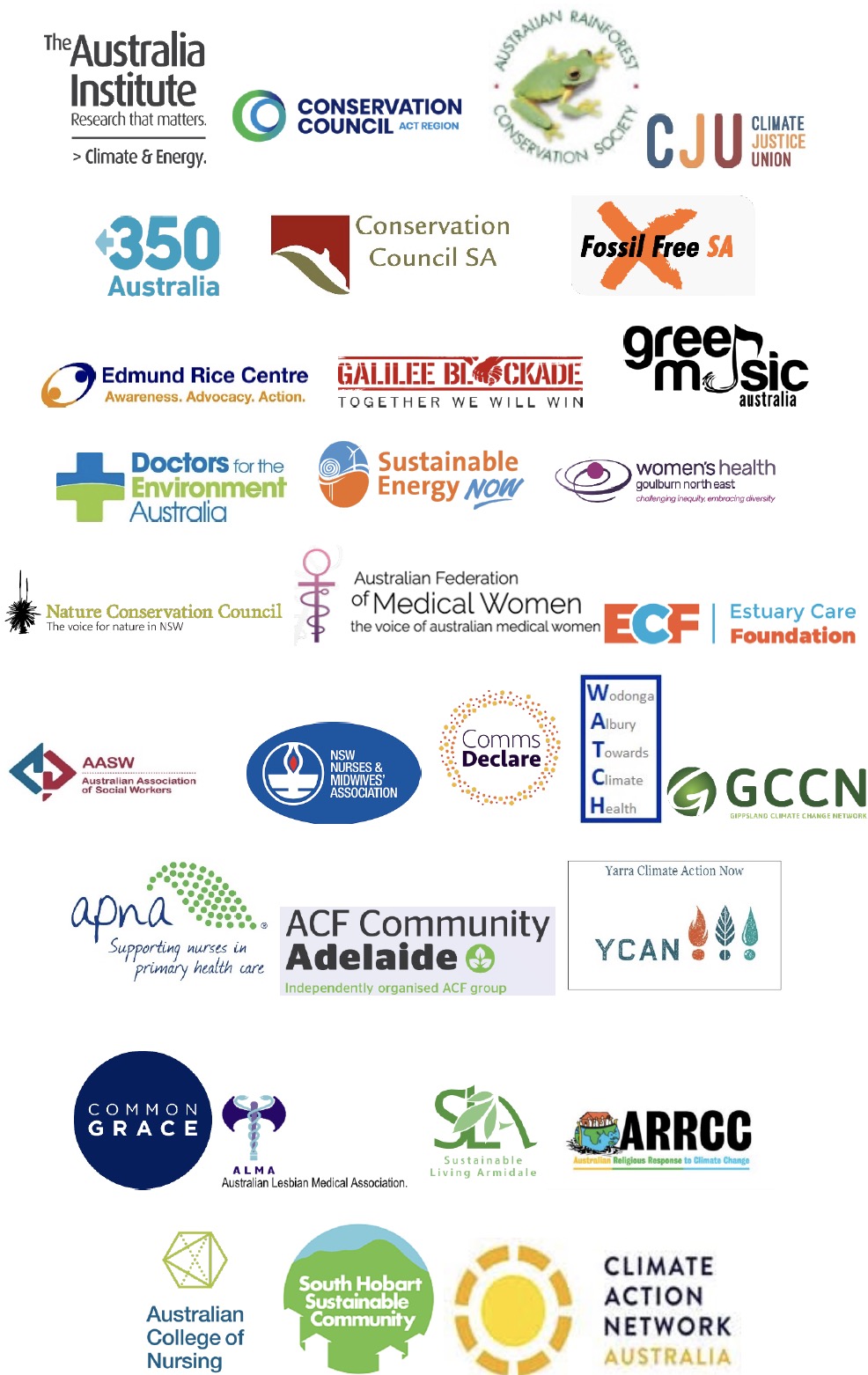Statement from civil society organisations
Moving on from a loud argument about a distant target
The political debate about climate change in Australia is stuck on whether the Federal Government should commit to net zero climate pollution by 2050. This is largely irrelevant to the real world climate crisis that’s harming Australians now, and endangering many of our livelihoods. The scientific consensus is that a rapid reduction in climate pollution is required by 2030 to avoid even more climate damage and keep the global 1.5 degree goal within reach.
Australia needs greater, immediate climate action to protect our communities, economies, jobs, and nature. Setting a net zero emissions target for 2050 is not only too late, it is also meaningless without a plan or concrete steps or investments that cut emissions this decade.
Australia is out of step with the rest of the world. Globally, our strategic allies and trading partners are committing to significant pollution reduction targets for 2030. At a summit of the Group of Seven (G7) country leaders in June this year, the United States, United Kingdom, Canada, France, Germany, Italy and Japan all committed to halving carbon emissions this decade.
Australia set a weak emissions reduction target of 26-28% below 2005 levels by 2030 six years ago, and has been refusing to increase this.
In the meantime, the United States has almost doubled its 2030 commitment to at least 50% reduction by 2030. Japan increased its 26% pollution reduction commitment to 46% by 2030, including a plan to halve gas-fired electricity generation and reduce coal power by more than a third. Canada, a major fossil fuel exporter like Australia, has increased a 30% commitment to 40- 45% cut by 2030. South Korea has committed to a 40% cut below 2017 levels by 2030. The United Kingdom is committed to 68% reduction by 2030, and 78% by 2035. The European Union is committed to 55% reduction by 2030. Collectively, these commitments are moving the world closer to the pathway of keeping global heating as close to 1.5 degrees as possible.
The science says that the Federal Government needs to triple climate pollution reduction targets to 75% this decade if we are to help keep Australians safe. If we continue with the current plan, then Australia won’t reach net zero climate pollution until the year 2170.
Australia has exceptional natural advantages with its abundant renewable energy and skilled workforce. We can develop world-leading new industries and jobs based on our vast reserves of solar and wind energy, but if development plans and investment don’t materialise, these renewable industries and jobs will go to other countries. Our exporters and workforce will also become disadvantaged as they wear the cost of border carbon adjustments applied to countries that are not acting responsibly to reduce climate pollution.
Unless the Federal Government acts decisively we will be left behind, or worse, penalised and globally isolated for our inaction.
There is no “safe” level of global warming. Already, at a global average temperature rise of 1.2°C, we’re experiencing more powerful storms, destructive marine and land heatwaves, and a new age of mega-fires. The latest science, and extreme floods, fires and heatwaves being experienced here and around the world, tell us climate change is accelerating. Our response must match the scale and urgency of this worsening crisis.
In November all countries will come together at the United Nations climate talks in Glasgow to accelerate climate action and avoid the most catastrophic social, economic and environmental
consequences of global warming. Our long term allies, the United Kingdom and the USA, and some of our largest trading partners, Japan and South Korea, want the Australian government to commit to much stronger targets for the coming decade.
Making a promise for net zero climate pollution 30 years from now, without any concrete plans to significantly cut climate pollution this decade, will rightly be seen as meaningless.
The Federal Coalition Government is split over a long-term target for 2050; having a public squabble between Barnaby Joyce and some Queensland National Party MPs, who continually question climate science, and many Liberal MPs who want the government to act. This debate is a loud argument about a distant target, when it should be about immediate action.
The Australian Federal Government does need to commit to a net zero target, but most importantly all Australian federal political parties should be pursuing a science-based target of 75% pollution reduction by 2030, with a just and fair plan to rapidly slash climate pollution across our economy this decade.

